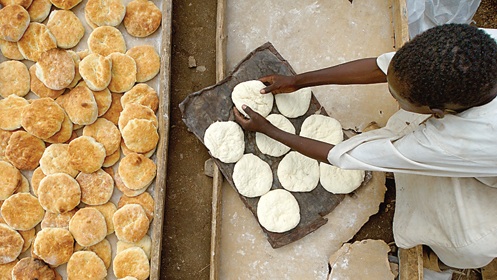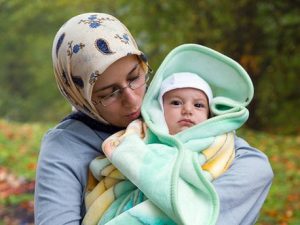With insufficient arable land of their own, Arab countries are farming in Sudan to secure their food future.
Early last year Karin reported on a troubling trend – a neo-colonial land grab occurring in Africa: Britain, Sweden, Germany, and South Korea have all usurped fertile African land in order to develop various agricultural pursuits. Then Gulf countries entered the fray since the combination of their own non-arable land and dependence on Western countries for food signaled a potentially insecure future.
That trend now appears to be escalating. Egypt is taking advantage of its Arab ties with Southern Sudan and has signed agreements to allow private companies to grow food to feed its burgeoning population, while the United Arab Emirates controls more farm acreage in Sudan than they have in their own country.
The United Arab Emirates control 2800 square kilometers of land in Sudan, according to Zawya, which amounts to an area three times as large as Bahrain and .04% larger than cultivated areas in the UAE.
A Sudanese embassy official in Abu Dhabi told the UAE daily Alittihad that “the UAE is the largest Gulf investor in farm projects in Sudan, controlling around 700,000 acres (4,832 square kilometers). The farms account for nearly 58 per cent of the 1.2 million acre farming ventures owned by the Gulf Cooperation Council (GCC), which groups the UAE with five other Gulf nations,” according to Zawya.
“The UAE’s farm investments in Sudan are the largest among the GCC investments in agricultural projects,” said Muneera Abdul Halim, an economic adviser at the Sudanese Embassy in the UAE.
With very little of their own arable land, Arab countries are among the world’s largest importers.
The Arab Organization for Agricultural Development (AOAD) reports that the GCC countries – which make up 10% of the Arab population – import 41% of all Arab food.
Saudi Arabia, Kuwait, Bahrain, Qatar, the United Arab Emirates, the Sultanate of Oman, and the Republic of Yemen are the six countries that comprise the GCC.
In 2008, after realizing that it would be unrealistic to reach self-sufficiency from their own land, these six Arab countries began to outsource their agricultural projects.
Muneera told Zawya that “Sudan, long dubbed the “Arab and African food basket,” had massive arable land, estimated at nearly 100 million hectares, accounting for around 48 per cent of the total Arab cultivated areas. It also has around 130 million hectares of pasture areas and over 135 million heads of livestock.”
::Zawya
More on Middle East agriculture in Africa:
Africa Up For Sale, Is The Middle East Buying?
Egypt To Grab Sudanese Land To Meet Its Wheat Needs
Israel and Germany Launch Sustainable Irrigation Project in Ethiopia
image via women methodists





a very Gulf approach